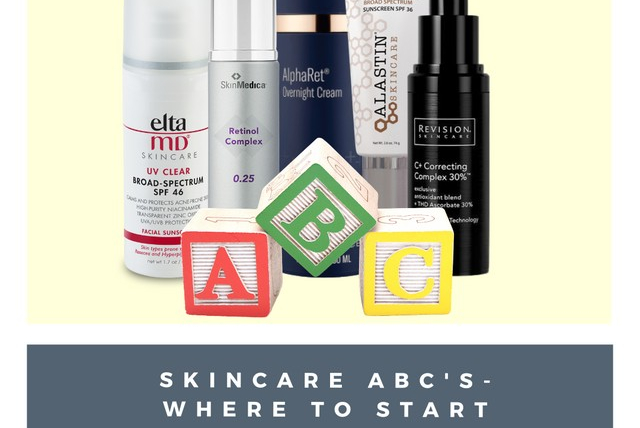With all the choices, ads, and influencers out there claiming you must use their products, skincare can be overwhelming. But it doesn’t have to be! Stick to the A B C’s to help build a great regimen. A – Vitamin A (retinol): Retinols are applied in the evening after cleansing your skin and can come in different variations and strengths.…
Are your bathroom shelves and drawers filled with products? Do you ever pick one up and wonder, “Is this still good?”. Keep reading to find out if you should use that cream that has been hiding in your drawer or if it is time to toss it. Sunscreen – The FDA requires that all sunscreens remain at their original strength…
If you plan a ski trip this winter make sure to protect your skin on the slopes! Skiers are at a higher risk for skin cancer because sunlight is stronger at higher elevations and rays reflect off the snow. Here are some tips to stay sun safe while skiing: Make sunscreen a part of your ski gear bag so you…
You may find that eczema flare-ups occur more often or get worse in the winter. The combination of dry air and indoor heating can dry out your skin. Eczema flares up because the skin can’t stay moist on its own. Flare-ups can also be caused by wearing too many layers of clothing, taking hot baths, or using too many blankets…
Dry, winter air can compromise the skin barrier and the skin’s ability to protect itself. Using antioxidants can help support skin that is already compromised from damaging free radicals. Free radicals are unstable atoms that can damage cells and cause illness and aging. They come from internal and external factors, such as smoke, pollution, and ultraviolet radiation from sun exposure.…
There are three major types of skin cancers: basal cell carcinoma, squamous cell carcinoma, and the most deadly type, melanoma. Each of these types can look completely different. For example, the thin types of basal cell and squamous cell can mimic a patch of eczema. Whereas deeper basal cells can look like translucent bumps on the skin. Deeper squamous cells…
Board-certified dermatologists are trained to treat all skin conditions, however, there are further specialized fields of dermatology that require additional training beyond the four year dermatology residency. For example, MOHS surgeons receive further training in the removal, pathology, and reconstruction of skin cancers. Pediatric dermatologists receive further training in childhood skin conditions. And dermatopathologists are experts in the pathology of…
If you have a family history of melanoma or other skin cancers or if you have a skin condition, you may benefit from being seen as a child or adolescent. However, by the time you reach 18 years of age, you should consider a baseline full-body skin exam by a board-certified dermatologist to evaluate your skin and moles.
A board-certified dermatologist is a medical doctor who has spent four years after medical school becoming an expert in the care of the skin and the treatment of skin diseases. Dermatologists treat a range of conditions including acne, rosacea, psoriasis, autoimmune diseases that affect the skin, eczema, and many many more skin disorders. Dermatologists also check your skin annually to…
Viviscal PRO vitamins are our top recommendation for stimulating hair growth. Viviscal uses a combination of marine ingredients including fish oils to give damaged hair the building blocks it needs to recover and grow again.






